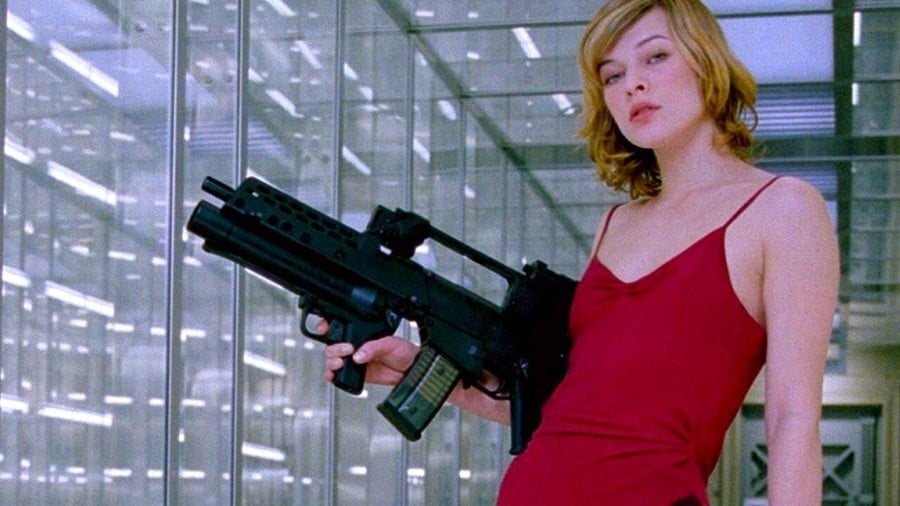
Over the years, the Resident Evil series has inspired a large number of films, and even a Netflix TV show, with the latest news being that the series is set for another adaptation from Zach Cregger (the director of Barbarian and Weapons) that is scheduled to land in cinemas in 2026.
But what you might not know is that before any of these films entered development, Capcom struggled to convince Hollywood that the series was worth adapting, with pretty much everyone passing on the project. This explains why the company ultimately ended up making the slightly unusual choice to partner with the German company Constantin Film to help make the first film a reality, with Capcom simply being turned down by everyone else it had approached..
Recently, Time Extension spoke to Marc Mostman, one of Capcom's representatives at Entertainment Licensing Associates Ltd. (ELA), about Capcom's licensing deal with Toy Biz for the Video Game Superstars line, and as part of that conversation, he shared the origins of how the film came about, and the difficulties they had pitching the film to Hollywood execs at the time.
Interestingly, as Mostman told me, the decision to make a Resident Evil film didn't come from Japan, but instead a Capcom licensing coordinator named Don Friedman, whose credit, alongside Mostman's, is nowhere to be found on the 2002 film.
As Mostman states, he was a friend of Friedman's and was used to working with the Capcom employee on various Street Fighter-related projects. However, one day in 1996 Friedman reached out about a different project, a new horror game Capcom was about to release called Resident Evil, which he felt might make a good movie.
"Don Friedman called me and said, ‘Capcom's got this amazing game coming out called Resident Evil. I'm gonna show you some stuff that's gonna blow you away. You guys have got to make it a movie’.
"So my boss, Daniel Kletzky, who had come out of Warner Brothers, said, ‘I know where we're gonna go to’. And so we put together a gameplay video of that opening scene where you walk into that door and the zombie is chomping away and then a bunch of scenes with the Dobermans jumping through the windows and we went to Warner Brothers and did the pitch. Up until that point, I had never pitched a film before, and I had to pitch these movie execs on Resident Evil."
As Mostman recalls, one of the techniques that he and his boss had devised to convince the Hollywood executives at Warner Brothers that Resident Evil was going to be a winner was to captalize on the buzz around the game. With the title having hit store shelves before the initial meetings with film studios were scheduled to take place, they decided to tell the decision makers at Warner Brothers and other companies to call up Toys"R"Us and pretend to be a customer, to see what game they would recommend for a teenage boy. This would hopefully show the companies that Resident Evil was a hot commodity, and something that already had some name recognition.
"My boss would say to them, ‘Call up Toys"R"Us and tell them you got a 15 year old birthday for a boy and you want to get him a game, what should you get him?’" said Mostman. "And every time someone would call, they would say ‘Oh, well you got to get him Resident Evil’. Unfortunately, Warner Brothers passed though, and from there, we went to every movie studio in Hollywood, and everybody passed."
Running out of options, it seemed like Capcom's plan to make Resident Evil crossover into a blockbuster film was going to end in failure, but then Mostman ended up showing the game to a friend, who just so happened to work at the German company Constantin Film.
"He was like, ‘Can you bring this in and pitch my boss?’ I told him ‘We’re only looking for bigger studios’, but he said, ‘No, no, you gotta pitch us.’ So I asked my boss about Constantin, and he said, ‘I know those guys. They're big. They're a German company.’ So we went in. I did the pitch. And Constantine on the spot said, ‘We’re in.’ We did a deal like a week later. And then it took like years for the first movie to come out."
Constantin Film signed the deal to make a Resident Evil movie in January 1997, with the writer of the 1997 Spawn film Alan B. McElroy becoming attached to the project, alongside George A. Romero who was slated to direct.
The script for the project, however, would end up going through multiple revisions, with Romero even producing his own screenplay for the film in 1998, which later ended up leaking online. As Mostman states, however, none of these quite got what made Resident Evil special, and the project dragged as it went through various changes behind the scenes.
"Every script that came in I would read and I would give notes," said Mostman. "They had an early draft of a Resident Evil movie from Romero, but it was not good. It was just not right. I ended up trying to stay at ELA long enough because I wanted to be involved in the final film, but it kept dragging on and had so many rewrites that it was taking forever, and eventually I was like, 'Okay, I need to move on.' So I ended up taking a job at Paramount to do licensing in 1999."
Following numerous changes to the story and creative, Paul W.S Anderson would end up releasing his version of Resident Evil a few years later, which would go on to receive numerous sequels and later become a billion dollar movie series — something that will probably keep a few Hollywood executives up at a night, regardless of their quality.




